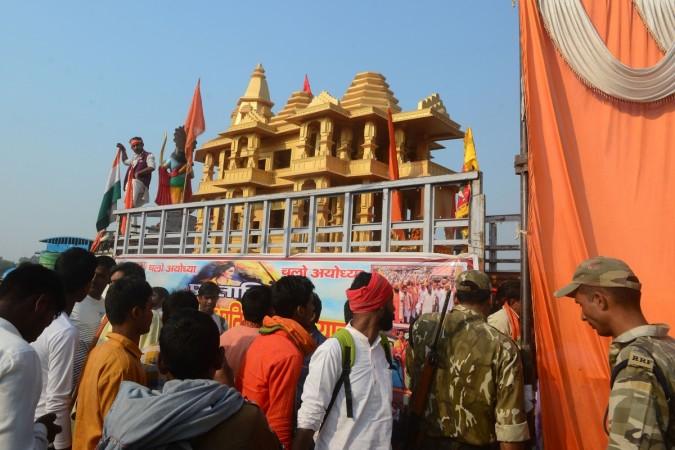
The Supreme Court on Friday extended the mediation committee on Ayodhya Ram Janmabhoomi-Babri Masjid land dispute case till August 15. The court said the members of the committee were not experiencing any difficulty in the mediation process.
The court observed that the chairman of the committee, Justice FMI Kalifulla, had indicated progress in mediation so far and sought an extension of time to complete the task. The court refused to divulge the details on the mediation efforts.
"We will not tell you the progress made, that is confidential," replied the court to a counsel's query regarding the mediation. The court observed that the mediation process can be also extended, if required.
The court's observation came after a report was submitted on the mediation efforts.
A five-judge Constitution bench comprising Chief Justice Ranjan Gogoi, Justices SA Bobde, DY Chandrachud, Ashok Bhushan and S Abdul Nazeer was hearing the matter on Friday for the first time since the last hearing on March 8.
In the previous hearing, the top court had referred the politically sensitive case, which has greater societal ramifications, pending for many decades for mediation, and constituted a panel for the same purpose.
Former Supreme Court judge FM Kalifulla is the head of the panel and he has been tasked by the court to hold a consultation to explore a potential avenue through which an amicable settlement between the parties could finally arrive.
The other two members of the panel are Sri Sri Ravishankar, renowned spiritual guru and founder of Art of Living Foundation; and senior advocate Sriram Panchu, who is a well-known mediator in the legal circles. The panel was constituted after the court noted "the lack of consensus between the parties in the matter".
Earlier, the Supreme Court had asked the panel to conduct in-camera proceedings and complete the mediation within eight weeks.
The court had recommended this on February 26, when it took up appeals regarding the dispute. The court said it could only decide on a property and what it was looking at was "a possibility of healing relationships".
During the hearing, the court had stressed to maintain the confidentiality of the proceedings conduct, as it will protect the on-going dialogue to be shielded from unwarranted controversies and also unsolicited comments.
Muslim petitioners have welcomed the Court's decision on mediation, but Hindu bodies, except for the Nirmohi Akhara and the Uttar Pradesh government, were not in favour.
The apex court is hearing appeals against the September 30, 2010 verdict of the Allahabad High Court. The verdict ordered a three-way division of the disputed 2.77 acres site between the Nirmohi Akhara sect, the Sunni Central Wakf Board, Uttar Pradesh and the deity Ramlalla Virajman.

















